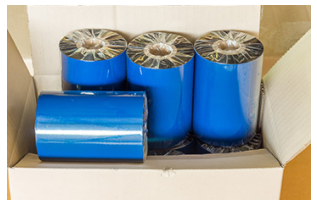The Four Principles of Good Food Hygiene
In the field of food handling and right food taking care of there are four perceived standards by which the food business controls how it identifies with all issues of Food Safety Hygiene Cutlery.
Together, these standards work to
cover all basic regions where the pollution of food happens.
By noticing these standards we
significantly limit the cleanliness chances associated with the treatment of
food and in the weighty tainting of food.
The four brilliant guidelines of
food cleanliness are:
- · Purchase food from a protected source.
- · Keep microorganisms from entering your food.
- · Forestall the duplication (or development advancement) of microscopic organisms in your food.
- · Obliterate microbes on food, utensils and work surfaces
Rule No.1)
Purchase food from a protected
source.
Ensure that you purchase food
just from a notable and respectable. Providers. Make sure that all food sources
be inside their expiry date and kept in proper conditions in the shop.
Serving counters ought to be kept
perfectly spotless, similarly machines like mincers, blades and cutting
machines.
Coolers, refrigerators and
chillers should show their temperatures and ought to be set at under 5 degrees
centigrade for chilled items and - 18 degrees centigrade or less for frozen
items.
All bundling ought to be unique
and not messed with or fashioned. This would demonstrate that the item isn't
the first substance and has been delivered by a false organization. Try not to
purchase these items under any conditions since they compromise your wellbeing.
All respectable retail
organizations that sell food should show exceptional licenses from every one of
the necessary administrative specialists as legally necessary. Check with your
nearby position to discover what licenses a food shop or a general store should
must be just getting started in your space.
Rule No.2)
Keep microbes from entering your
food
Alright! This is the speed to let
you know a little with regards to microbes and how they duplicate.
All microscopic organisms, when
they have the right conditions start to duplicate. The conditions that they
need are,
a) a temperature of over 10
degrees centigrade, (some say 5 degrees).
b) A food source. Microorganisms
separate all natural matter into sugars and utilize the fundamental food
particle which is mono-saccharide glucose for their digestion.
Microbes need just 20 minutes to
change themselves to another food source. For instance, supposing a microbes
was on a sweet food and abruptly wound up on fish, the change the microscopic
organisms would should have the option to process the new food source is twenty
minutes.
c) A wellspring of water.
On gaining appropriate conditions
microbes then commence to replicate at a pace of one division of the entire
province at regular intervals. For example assuming that you had 1000 microbes
on a piece of food in the first place, you will have 1,000,000 microscopic
organisms following 20 minutes. In the accompanying 20 minutes the number would
bounce dependent upon 1,000,000 million microscopic organisms. After that the
numbers are basically galactic!
Holding microorganisms back from
getting into your food is essentially down to counteraction of cross pollution.
Cross defilement implies the
contact of any food source with any type of pollution from another source. This
could be other food (crude or handled), Packaging, trash, polluted water or
air, messy or wiped out people, creature life, or messy instruments and
surfaces.
In great expert kitchens there
are various ice chests for various capacities. For instance, there is one ice
chest for dairy, one more for cold new vegetables and one more for food that
has been cooked.
As mortgage holders we don't for
the most part have this extravagance hence it is encouraged to keep cooked food
varieties at the highest point of the refrigerator and natural substances at the
base in shut compartments. This way the danger of pollution is incredibly
diminished.
Eggs, particularly, ought to be
kept in a shut compartment since they have numerous microbes on their external
shells.
Make sure to clean up and arms to
the elbow prior to getting ready food. Cut your plates of mixed greens first
and afterward go onto the food sources that are to be cooked trying to
completely wash your board prior to continuing on to various kinds of food.
Wash all surfaces previously,
then after the fact work with a decent cleanser. Put fabrics into the wash
after every utilization. Continuously start with a spotless fabric.
Rule No.3)
Forestall the duplication of
microorganisms in your food.
As Stated above microorganisms
need the right conditions to isolate themselves. To do this they need A) the
right temperature, B) Food and C) water.
It follows, then, at that point,
that food ought to be put away at the most minimal conceivable temperature to
keep microorganisms latent. Likewise, don't permit your food to come into
contact with water before you cook it. By defrosting food in water we are
giving the microorganisms a heads start.
Cook your food at the soonest
conceivable second and after it is cooked keep it at a temperature of something
like 70 degrees centigrade until it is served.
On the off chance that you need
to cool your food, don't place hot food in huge compartments into the cooler.
Split it into more modest holders and don't stack them so that air can't flow
around the compartments. When cool freeze if conceivable.
When defrosting food, do it in
the ice chest in a shut compartment. Keep in mind, it's smarter to design a
feast several days early than to have need to take a few debilitated vacation
days work in bed.
Once defrosted, cook the food
straightaway.
The most effective way to
annihilate all microbes is to prepare your food in a tension cooker. This way
the blend of expanded temperature and expanded climatic strain will totally
clean the food.
Rule No. 4).
Annihilate microscopic organisms
on food, utensils and work surfaces.
This standard represents itself
with no issue. Try not to allow them to create in your kitchen.
Cook food as fast as could be
expected. Food that can't be cooked ought to be frozen assuming it isn't eaten
inside a short space of time.
Elective types of food
conservation, for example, lack of hydration, smoking, canning, disinfecting,
thinking and pickling are altogether elective methods of forestalling the
advancement of and obliterating microscopic organisms in food.
The environmental elements
likewise comprise a wellspring of food defilement, consequently, you should
wash your work surfaces after every use with high temp water and cleanser.
In proficient kitchens, all
functioning regions ought to be surfaced with tempered steel. Thusly, the surface
might be cleaned with unique oil and lime eliminating synthetic compounds that
have either a scathing soft drink base or a phosphoric corrosive base. For
security, recollect never to blend synthetic compounds; particularly acids and
salts like harsh pop and phosphoric corrosive.
Moreover wash all utensils in
exceptionally hot water and cleaning up cleanser. The water ought to be hot to
the point that you really want gloves to endure the hotness.
Store pots, dish, plates, cutlery
and different utensils in a perfect and dry spot. Ensure that they are dry
prior to putting away them away. Utilize a spotless drying towel without fail.
Store them tops curvy. Keep all stockpiling regions clean. Check regularly for
indications of vermin.
Heat porcelain to 80 degrees
centigrade prior to serving. This will forestall defilement much Further.
For More Info, Visit Us:


Comments
Post a Comment